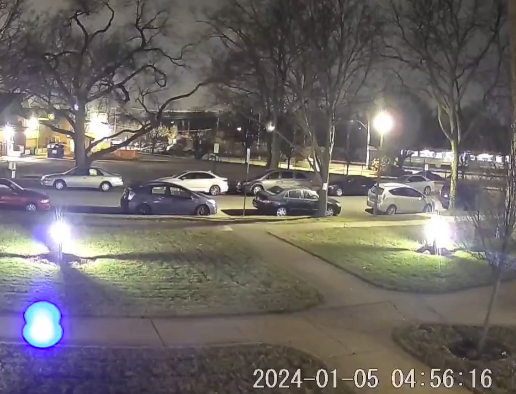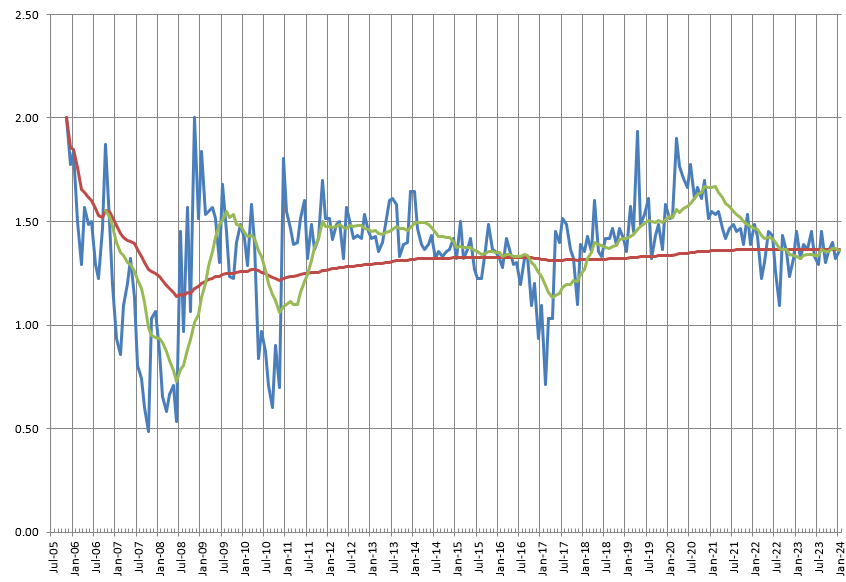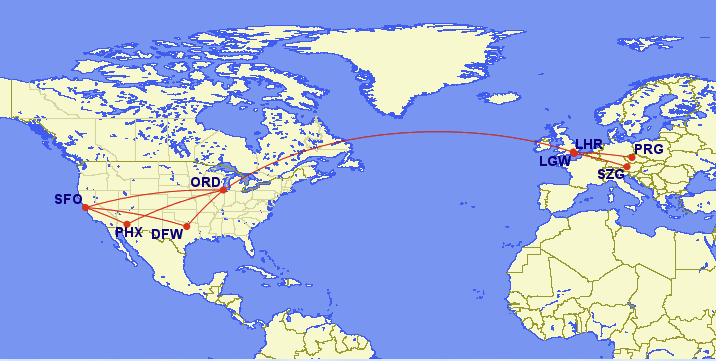The weather forecast for Munich doesn't look horrible, but doesn't look all that great either, at least until Saturday. So I'll probably do more indoorsy things Thursday and Friday, though I have tentatively decided to visit Dachau on Thursday, rain or not. You know, to start my trip in such a way that nothing else could possibly be worse.
Meanwhile, I've added these to yesterday's crop of stories to read at the airport:
Finally, don't skip your dog's walks. They're very important to her health.
As I'm trying to decide which books to take with me to Germany, my regular news sources have also given me a few things to put in my reading list:
Finally, the North Atlantic has near-record jet streams again this week, approaching 360 km/h, and shaving 45 minutes off the DC–London route. I would love that to happen Wednesday.
New York Justice Arthur Engoron just handed the XPOTUS a $350 million fine and barred him and his two failsons from running a business in New York for years:
The decision by Justice Arthur F. Engoron caps a chaotic, yearslong case in which New York’s attorney general put Mr. Trump’s fantastical claims of wealth on trial. With no jury, the power was in Justice Engoron’s hands alone, and he came down hard: The judge delivered a sweeping array of punishments that threatens the former president’s business empire as he simultaneously contends with four criminal prosecutions and seeks to regain the White House.
Mr. Trump will appeal the financial penalty — which could climb to $400 million or more once interest is added — but will have to either come up with the money or secure a bond within 30 days. The ruling will not render him bankrupt, because most of his wealth is tied up in real estate.
Of course he'll appeal, but New York doesn't give him many grounds to do so. And given the scale of the fraud he perpetrated on the State, even this eye-watering sum will probably survive scrutiny from the appellate court.
In other news this afternoon:
Finally, the Tribune has a long retrospective on WGN-TV weather reporter Tom Skilling, who will retire after the 10pm newscast on the 28th.
A few months ago a Chicago Parking Enforcement Agent (PEA) tried to give me a ticket while I was paying for the parking spot online. I kept calm and polite, but I firmly explained that writing a ticket before I'd even finished entering the parking zone in the payment app might not survive the appeal.
Yesterday I got another parking ticket at 9:02pm in a spot that has free parking from 9pm to 9am. The ticket actually said "parking expired and driver not walking back from meter." Note that the parking app won't let you pay for parking beyond 9pm in that spot. Because, again, it's free after 9pm. That didn't stop the PEA, so now I actually will appeal, and I'll win. But it's a real pain.
Again, I thank Mayor Daley for jamming through the worst public financial deal in the history of the United States.
Meanwhile, I didn't have time to read all of these at lunch today:
- Almost as shocking as the realization that privatizing parking meters games the system in favor of private interests against the general public, it turns out so do traffic impact studies.
- The Illinois Board of Elections voted unanimously to reject an effort to keep the XPOTUS off the Republican Party primary ballot, citing an Illinois Supreme Court ruling that excludes the Board from constitutional questions.
- Former South Carolina governor Nikki Haley (R) won't win the Republican nomination for president this year, but she will make the XPOTUS froth at the mouth.
- Of course, she and others in her party persist in trying to make their own voters froth at the mouth, mostly by lying to them about the state of the economy, cities, and other things that have gone pretty well since 2021.
- Of course, perhaps the Republican Party lies so much to cover their demonstrable incompetence at governing?
- Christopher Elmensdorf warns that the clean energy bill winding through the Democratic offices on Capitol Hill will lead to endless NIMBYism—not to mention bad-faith blockage by fossil-fuel companies.
- For only $120,000 a year, this consultant will get your kid into Harvard.
- Helmut Jahn's new building at 1000 S. Michigan Ave. looks super cool.
I will now go back to work. Tonight, I will schedule my parking appeal. Updates as conditions warrant.
Looking out my 30th-floor office window this afternoon doesn't cheer me. It's gray and snowy, but too warm for accumulation, so it just felt like rain when I sprinted across the street to get my burrito bowl for lunch.
I do have a boring deployment coming up in about an hour, requiring only that I show the business what we've built and then click "Run pipeline" twice. As a reward for getting ahead on development, I have time to read some of these absolutely horrifying news stories:
Finally, Cranky Flier examines American Airlines' European operations and singles out its heavy dependence on Heathrow as a key reason why its fares trans-Atlantic are lower than other US carriers. Since I am using one of those really low fares to visit Germany next month, I'm OK with American keeping their fares low.
A small collection:
Finally, in her column on December 31st, Jennifer Rubin suggested people get some perspective on history to understand that the past was much worse than today.
Update: A friend sent this security-cam photo of the first Yellow Line pulling into the Dempster station after service resumed:

Though my "to-be-read" bookshelf has over 100 volumes on it, at least two of which I've meant to read since the 1980s, the first book I started in 2024 turned out to be Cory Doctorow's The Lost Cause, which I bought because of the author's post on John Scalzi's blog back in November.
That is not what I'm reading today at lunch, though. No, I'm reading a selection of things the mainstream media published in the last day:
Finally, for $1.7 million you can live inside a literal brick oven. The fifth-floor penthouse in the former Uneeda Biscuit building on Chicago's Near West Side includes several rooms with brick ceilings that were, decades ago, the ovens that cooked the biscuits. Cool. (Or, you know, hot.)
Wouldn't that be nice? Alas, people keep making them:
Speaking of excoriation, David Mamet has a new memoir about his 40 years in the LA film industry, Everywhere an Oink Oink. (Expect to find that on next year's media roundup.) And I still have to read Linda Obst's Hello, He Lied, which I keep forgetting to liberate from my dad's bookshelf.
Last year continued the trend of getting back to normal after 2020, and with one nice exception came a lot closer to long-term bog standard normal than 2022.
- I posted 500 times on The Daily Parker, 13 more than in 2022 and only 6 below the long-term median. January, May, and August had the most posts (45) and February, as usual, the least (37). The mean of 41.67 was actually slightly higher than the long-term mean (41.23), with a standard deviation of 2.54, which may be the lowest (i.e., most consistent posting schedule) since I started the blog in 1998.

- Flights went up slightly, to 12 segments and 20,541 flight miles (up from 10 and 16,138), the most of either since 2018:

- I visited 5 countries (the UK, Czechia, Austria, Slovakia, and Germany) and 5 US states (California, Wisconsin, Arizona, Indiana, and Michigan). Total time traveling: 156 hours (up from 107).
- Cassie had more fun last year than 2022 as my team went from 2 to 3 days in-office (meaning more time at day camp). She got 372 hours of walks (up from 369) and at least that many hours of couch time.
- Total steps for 2023: 4,619,407 steps and 3,948 km (average: 12,655 per day), up from 4.54m steps and 3,693 km in 2022. I hit my step goal 341 times (327 in 2022), which wasn't bad at all. I also did my longest walk ever on September 1st, 44.45 km.
- Driving? I did several trips to Michigan in the summer, but still only drove 5,009 km (down from 5,925) on 87 L of gasoline (down from 144), averaging 1.7 L/100 km (136 MPG). That's the best fuel economy I've ever gotten with any car for a full year. I last filled up July 30th, and could conceivably go through January on what I've got left in the tank, but it's always best to keep your tank full in super-cold weather.
- Total time at work: 1,905 hours at my real job (up from 1,894) and 73 hours on consulting and side projects, including 640 hours in the office (up from 580), but not including the 91 hours I spent commuting (down from 103). How did I add 60 hours in the office while cutting 12 hours off my commute, I hear you ask? Simple: I live closer to the Metra than I used to, and the 6-10 minutes a day adds up.
- The Apollo Chorus consumed 247 hours in 2023, with 166 hours rehearsing and performing (cf. 220 hours just on the music in 2022). We had fewer performances and an easier fall season, which made a huge difference.
- As for media consumption, I'll leave that to its own post tomorrow.
In all, not a bad year. I hope the trends continue for 2024, though I do expect a few more blog posts this autumn...
Yeah, I know I've posted this nonsense before. Kiritimati atoll (pronounced "Christmas" because the missionary who named the place had a broken typewriter) and Kiribati changed their time zone to UTC+14 in 1994 so that they could be the first place in the world to enter the 21st Century. So while the wall-clock time on Kiritimati is the same as the wall-clock time in Hawai'i, Kiritimati and Kiribati are a full day ahead.
Anyway, it's now 2024 in the Pacific/Kiritimati time zone. Happy new year!